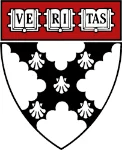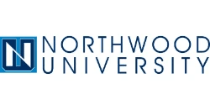
Alfredo Faubel
CEO • Entrepreneur • Chemical Engineer • MBA • Management Consultant • Mentor • Volunteer
Alfredo Faubel is a CEO, entrepreneur, engineer, management consultant, mentor, and volunteer with decades of international experience.
Swiss-trained chemical engineer (ETH Zurich) and a Harvard MBA, fluent in Spanish and German, Alfredo is the founder of Miura Board, a startup created to manufacture a durable100% recycled, plastic-fiber composite 4x8 sheet, and a co-founder of Carbon BioCapture®, a world leader in converting CO2 point-source emissions into microalgal biomass.
At Inter-American Management Consultants, Alfredo has worked with publicly traded, privately held, and family-owned businesses across Latin America. His expertise lies in corporate strategy development and implementation, financial and business models, and branding.Before that, Alfredo was CEO of Natra US, CEO of COMPAC Surfaces, and Sales & Marketing Manager Airopak Division Europe for Air Products & Chemicals.
Alfredo volunteered for ten years as President of the Miami Fencing Club, the only 501(c)(3) nonprofit dedicated to teaching Olympic fencing in South Florida.In the past, Alfredo taught Comparative Economic Systems as an Adjunct Professor at Northwood University, served as VP of the Harvard Business School Alumni Club of South Florida, and as Treasurer at Miami Rare Fruit Council International, also a non-profit organization.
EDUCATION
EXPERIENCE
Miura Board®
Founder
2016 - present
Startup manufacturing the most durable, 100% recycled, fiber-plastic composite 4'x8' board, using "non-recyclable" plastics and fibers diverted from landfills. Manufacturing plants in Brazil, Argentina, Chile, and UAE. More locations coming soon.
Cut waste, not trees.™
Carbon BioCapture®
Co-Founder
2019 – Present
Carbon BioCapture® designs, builds, owns, and operates its microalgal photobioreactor (PBR) arrays, also known as “Carbon Farms” that remove CO2, SOx, and NOx from point-source emissions such as fossil fuel combustion, cement kilns, smelters, etc. Our patented technology is unique in that industrial gases require no pre-treatment. The resulting biomass can be used as a green fuel or a fertilizer or to produce biofuels, animal and aquaculture feed, omega fatty acids, bioplastics, etc.
Inter-American Management Consultants, Inc.
Senior Consultant
1996 – Present
Develop and help implement corporate and marketing strategies. Create business plans for startups. Work with publicly traded, privately held, and family owned businesses. Certified in the Strategy Map® tool. Clients served in retail, wholesale, automotive, paper, construction, healthcare, financial services, software, publishing, pharma, manufacturing, food and beverage, agribusiness, nonprofits, recycling, chemicals, energy, and others
Air Products & Chemicals, Inc.
Sales & Marketing Mgr - Airopak Europe
1983 – 1987
Responsible for product and market development, pricing strategy, sales training, marketing communications, and financial evaluation of new plant investments. Created and ran sales and distribution functions in Europe. Grew sales from zero to several million at which point the division (with three manufacturing plants in the UK, France and Spain) could be spun off.
Miami Fencing Club, Inc.
President
2012 – 2022
Founded in 1987 the Miami Fencing Club is South Florida’s only 501(c)(3) non-profit dedicated to teaching and promoting the sport of Olympic fencing. We do this by developing and training champions in all three weapons - foil, epee, and saber - and by providing a venue for competitions and recreational fencing.
Mission
To promote honor, sportsmanship, and chivalry through the art of fencing
To teach the skills needed to master the art of fencing
To foster camaraderie by participating in competitions
To provide the environment and the coaching required to enjoy fencing safely
Faubel International Co.
President
1996 – Present
Management Consulting and International Expansion services to help businesses enter new markets in Europe, Latin-America and the USA.
We leverage decades of experience and detailed knowledge of the market's structure, opportunities and pitfalls, to overcome cultural and language barriers, develop and implement highly specific marketing and branding strategies, and build sales and distribution networks. For US clients wishing to export, we arrange working capital financing.REFERENCES

Joseph Ganitsky
Director Center for International Business Education and Research (CIBER), University of Miami
I have known Alfredo for close to a decade. Since the very first time I met him I found him to be an amazing professional: Smart, thoughtful, willing to help others, critical thinker, pragmatic, always ready to say things as they are, multi-cultural, globally minded, and very pleasant. As a result, he is an outstanding and valuable consultant. His focus on key issues affecting opportunities or challenges allows him to offer others very realistic approaches with which to succeed. Because it is always fun to be with him, you will find that even in your most stressful moments, his comments will lift your spirit and help you move forward with confidence. The above is not only my opinion, it is shared by the very many he has advised. I strongly recommend him and without any reservation.

Ramon H. Arias
President & CEO at Inter-American Management Consultants
Alfredo falls in that category of individuals that have a rare and acute level of creativity which allows him to see clearly where opportunities lie and develop the plans necessary to reach and exceed expectations. He is intuitive, resourceful and witty. Clients like him, respect him and seek his counsel.
Over the past 19 years, Alfredo has been a solid contributor to IAMC's results. We are proud to have him in our team.
Ramon Arias
Theodore Pary
CEO at Amero Foods Manufacturing Corp.
Alfredo is a high profile professional .
I enjoyed all the time I was working with him.
He is a great strategist and a valuable asset for any company needing help to improve marketing strategy and sales.ARTICLES

Six Tips for Competitive Analysis
First, be aware that your findings will only have an impact if they’re translated into action, so do include executable recommendations. This requires a good knowledge of your own company’s strategic choices as well as its own set of strengths and weaknesses. Analysis for its own sake leads to paralysis.
Second, find those strengths in your competitor that actually prevent it from executing along a particular - or even better a new - competitive dimension. (Classic example: IBM and HP had strong PC retail partners they could not alienate by selling directly to consumers, while Dell lacked these distribution channels). A competitor’s strength can be turned into an entry barrier to a new market segment.
Third, scan wide and far for substitute products and entrants. These are the "invisible" competitors who can creep up on you from the fringes. (Uber is not a taxi company, however they pose a huge threat to the taxi industry. Apple was not a phone company but look what happened to Motorola and Nokia.)
Fourth, remember that true differentiation is often hard to find, what matters more often is the existing relative difference between your company's and its competitor's strengths along a particular competitive dimension, i.e. its positioning. (You don't have to run faster than the bear, just faster than your fellow hunter).
Fifth, map your findings on a single summary page. Creating a clear image of the competitive landscape helps focus on the strategic choices open to your company and those already made by your competitors, but more importantly it also alerts you to the empty spaces or "blue ocean"-like opportunities.
Sixth, bullet proof your strategic recommendations by running different scenarios and testing the boundaries of your model. Push the limits by developing and exploring an outcome where everything goes wrong: e.g. "the ludicrous scenario". This helps identify flaws in your thinking and blind spots in your assumptions.

¿Por qué hay gente brillante pero pobre?
¿Alguna vez ha conocido a una persona brillante - hoy dirían "geek" - que lo sabe prácticamente todo sobre su especialidad, pero que no ha prosperado económicamente? En mi calidad de asesor empresarial he podido colaborar con varios de estos casi genios, y en más de una ocasión incluso invertí mi dinero y tiempo en algunas de sus ideas locas... que nos iban a hacer ricos a todos. Sobra decir que no sucedió. Pero bien, dicen que el que no consigue lo que quiere al menos saca experiencia. Y esto es lo que puedo compartir ahora.
A menudo me he hecho la pregunta si existirá alguna correlación entre ser muy brillante y fracasar en los negocios. ¿Es acaso inevitable que las personas superdotadas carezcan del sentido común o de habilidad para ganar dinero? Ciertamente no, como demuestra el éxito de renombradas empresas de Silicon Valley.
Mi conclusión es que las ideas - por brillantes que nos parezcan - son sorprendentemente abundantes, como la arena del mar, pero son muy pocos los granitos de arena que acaban dentro de una ostra y se convierten en perlas. Y es que la labor de creación de valor - la monetización de las ideas - puede es tan poco atractiva como la misma ostra: alguien tiene que hacer el trabajo "sucio", lo aburrido, lo "no creativo" que hace que las cosas funcionen. Sin ese exoesqueleto o infraestructura de soporte no se pueden transformar las ideas en valor económico.
En mi experiencia muchos de estos individuos creativos - casi genios - carecen del carisma para conseguir dinero, o para liderar a otras personas, o ambos. Quizás sea por eso que en los últimos años han aparecido verdaderos bancos de ostras - léase: incubadoras, como por ejemplo Venture Hive - para lanzar nuevas empresas basadas en nuevas tecnologías.
Y sin embargo hay magníficos ejemplos de éxito empresarial (como Starbucks) que no se fundamentan en la tecnología sino en un modelo de negocio totalmente innovador. Me pregunto ¿habrá incubadoras donde se estimulen nuevos modelos de negocio SIN nuevas tecnologías? Quizás en ellas los genios sean artistas en vez de "geeks".
Está por ver si la inversión de fondos públicos en incubadoras es rentable. Ciertamente cabe la posibilidad de que no sea así. El capital de riesgo (privado) depende de muy pocos éxitos para compensar las pérdidas incurridas en la mayoría de sus inversiones, ¿porque habría de ser distinto para una fundación?
Me alegra ver que hoy existen muchos más recursos y oportunidades para que aquellos que sueñan puedan convertir sus ideas en negocios y así crear prosperidad. Con suerte la gente brillante pero pobre será cosa del pasado, al menos en este país.

How to Build a Website Like a Professional
You’ve read all your free member-only stories.
Become a member to get unlimited access and support the voices you want to hear more from.
MY MOTTO
I don't make it cheap, I make it possible.™
SKILLS
Corporate Strategy
Business Models
New Business Development
International Expansion
Startups
Business Plans
Financial Modeling
Marketing Strategy
Languages
LET'S CHAT
English - Español - Deutsch
CONTACT ME!
Copyright 2015















